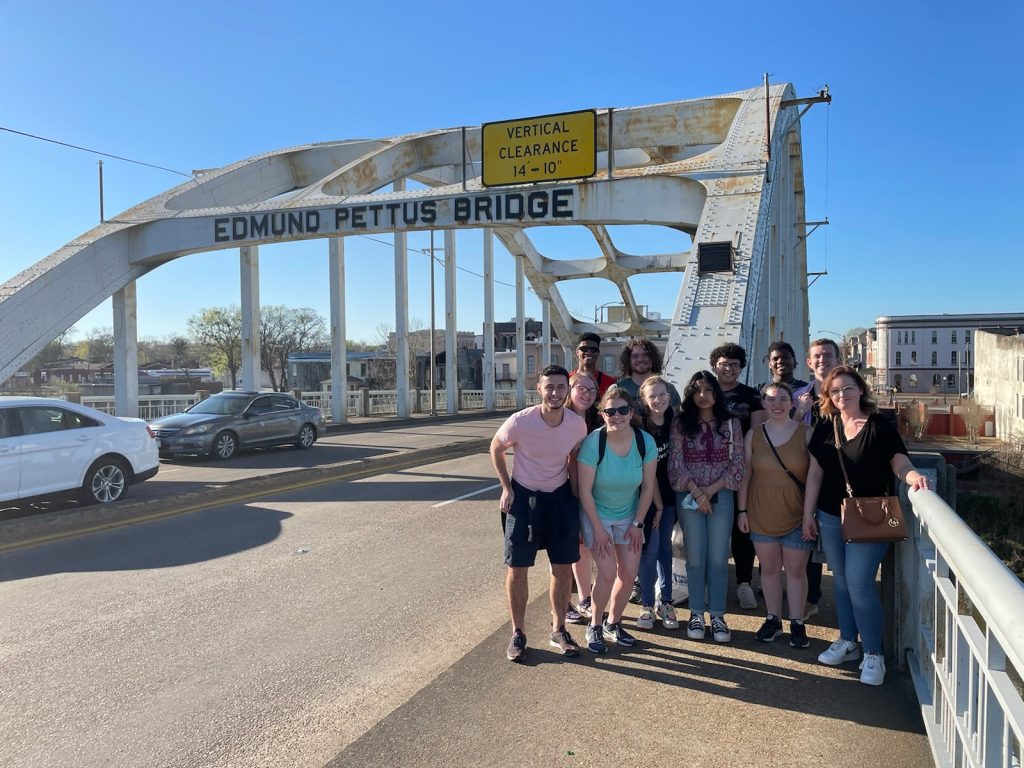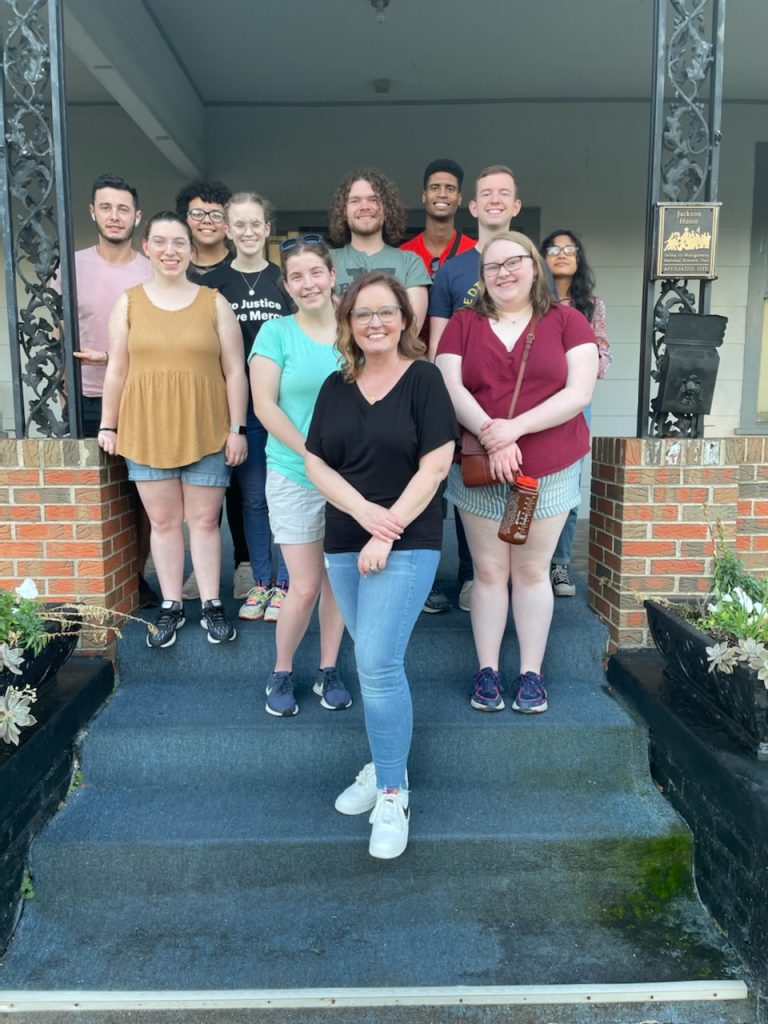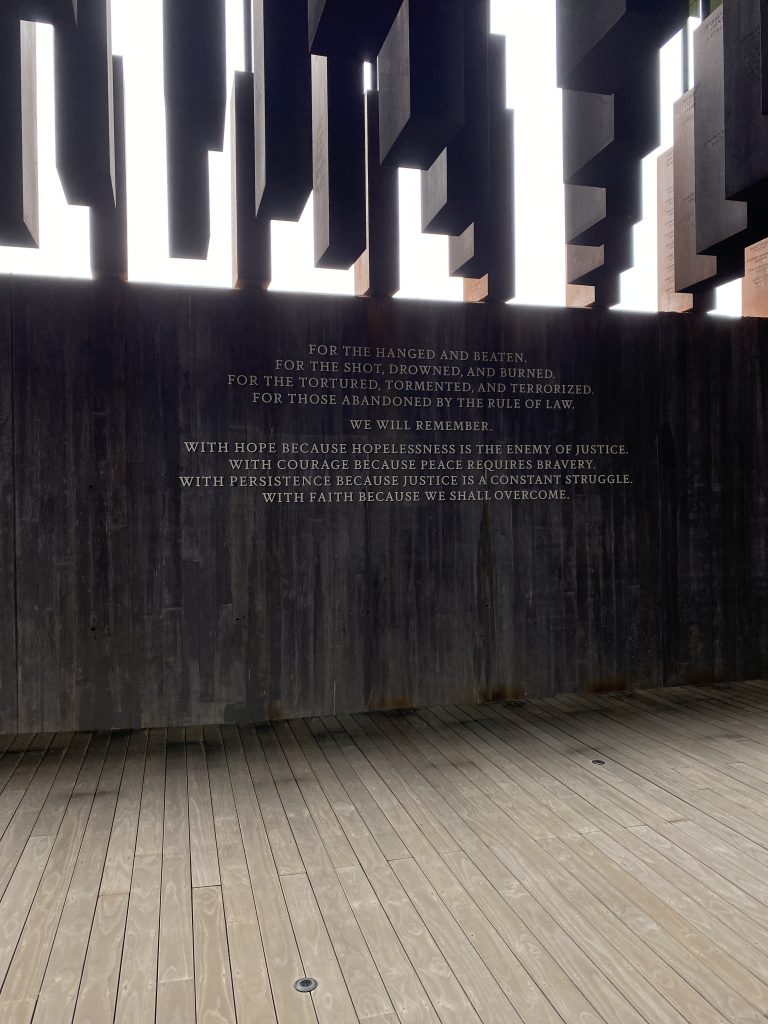Civil Rights Immersion Trip Teaches Empathy
Bethel University took a group of eleven students to Georgia and Alabama, March 6-12, 2022, led by Amber Beamer-Rohde, associate professor of psychology, chair of the psychology department and chair for diversity, equity, and inclusion council (DEI).
The purpose of the trip was for students to gain exposure to civil rights history and to have the opportunity to learn things that people may or may not have learned in school. Beamer-Rohde says that leading students through how to engage in hard conversations with other people in a kind and respectful way, was one of the important focuses for the trip.
“[As Christians we should] be agents of healing peace and reconciliation,” Beamer-Rohde says.
The group traveled first to Atlanta, Ga., touring key sites related to Martin Luther King Jr., then to Montgomery Ala., and to Tuskegee, Ala., visiting the Multicultural Center of Tuskegee Airmen and the National Memorial for Peace and Justice in Montgomery. Their travels also included the Rosa Parks Museum, the Footprints to Freedom tour in Selma, Ala., visits to local churches, the Edmund Pettus Bridge, the Negro Southern League Museum, and the Birmingham Museum of Art.
The group also met two individuals who were present at protests in Selma during the Civil Rights movement. Hearing their firsthand experiences was extremely impactful for the group, according to Beamer-Rohde.
“The history of the civil rights movement, I think, touches everybody. Students I think will walk away with different points of focus,” Beamer-Rohde says.
During the trip, students were asked to choose a creative outlet and document their experiences on the trip through that outlet. Students displayed their work, held a discussion panel and answered questions from the audience.
“Realizing what these communities went through, and how they responded, has pushed me to reflect on how I display a Christ-like attitude in my own life,” said student Aimee Smith.
The trip was made possible and fully funded by a Lilly Foundation grant awarded to the university. Many parts of campus received funds from the grant, including the DEI Council.
“I think it can be difficult for people now to try and understand what it was really like to be there [during the Civil Rights Movement], and this trip made it easier to try and imagine that. The information and the experiences you bring back are so, so worth it,” said student Diane Perschbacher.




